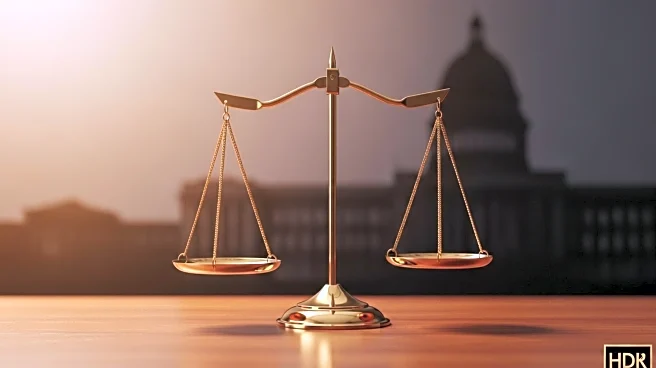What is the story about?
What's Happening?
President Trump's 'One Big Beautiful' tax law, signed into law on July 4, has extended his first-term tax cuts set to expire in 2025, introducing new breaks that affect 2026 tax bills. According to a new calculator from the Tax Foundation, the law will increase take-home pay for most households. The tax changes include rate cuts, deductions, and credits, with the standard deduction rising to $15,750 for single filers and $31,500 for married couples filing jointly. The child tax credit also increases to $2,200 per child, adjusting automatically for inflation. The law provides deductions for overtime pay, tip income, auto-loan interest, and a temporary 'senior bonus' for taxpayers aged 65 and older. The cap on state and local tax write-offs increases from $10,000 to $40,000 for most households, though it scales back for top earners.
Why It's Important?
The tax law's extension and new provisions are significant as they aim to boost take-home pay across various income brackets, with upper-middle-income households seeing the largest percentage increases. However, the benefits are not evenly distributed, with lower earners receiving smaller gains. The Congressional Budget Office projects that these tax breaks will increase federal deficits by at least $3.4 trillion over the next decade, contributing to the national debt, which has already exceeded $36 trillion. This increase in debt is largely driven by pandemic relief, rising social program costs, and continued government borrowing, raising concerns about long-term fiscal sustainability.
What's Next?
The tax law's impact on federal deficits and the national debt may prompt discussions among policymakers and economists about fiscal responsibility and potential adjustments to tax policy. Stakeholders, including political leaders and economic analysts, may debate the balance between stimulating economic growth through tax cuts and managing the growing national debt. Future legislative sessions could address these concerns, potentially leading to revisions in tax policy to mitigate deficit impacts.
Beyond the Headlines
The tax law's extension reflects broader economic and political strategies aimed at maintaining economic growth and voter support. The uneven distribution of benefits raises ethical questions about equity in tax policy, potentially influencing public opinion and political discourse. Long-term shifts in fiscal policy may emerge as stakeholders assess the implications of increased deficits and national debt on future generations.
















